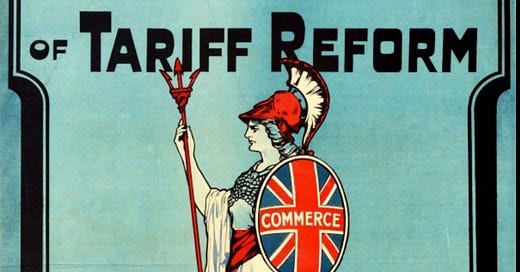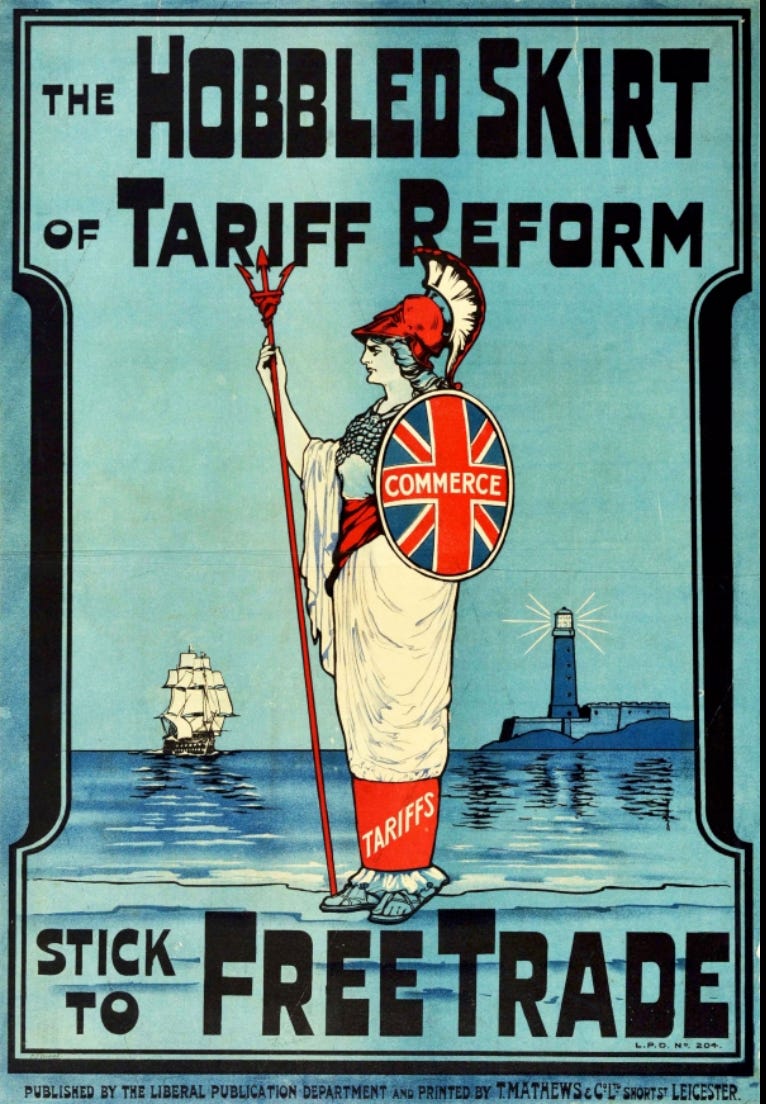When my children were all still in primary school I gave them the one-chocolate test, better known as the ‘ultimatum game’. They were offered the choice of either being given one piece of chocolate, and their siblings getting two - or none of them having any. They all chose communism, I’m afraid to say, but they were young and a sense of ‘fairness’ is inherent in all of us. Many people would rather go without than allow their neighbours to become richer than them.
It is for this reason that zero-sum thinking is common, especially popular with the young - if someone else wins, then I have lost. This sort of worldview is instinctive, because in the natural world in which we evolved it was usually true - but it also goes against mainstream economics. In most cases, your neighbour getting richer does not make you poorer, and thinking that only leads to unwise economic and political choices.
So it’s notable, and slightly worrying, to realise just how much the President of the United States sees the world in this way, emphasised by his bizarre new trade policy. In the Spectator, economist Ryan Bourne explained the ‘logic’ of the tariffs like so:
Traditionally, trade reciprocity implies matching another country’s tariffs tit-for-tat. For instance, if the UK imposes a 10 percent tax on US chicken, the US would impose the same import tax on British chicken. Many had anticipated that “Liberation Day” would therefore introduce a complex array of tariffs reflecting the barriers other individual nations place on importing specific American goods.
Trump’s instincts instead took him in a much weirder direction. The President views trade deficits themselves as evidence of other countries exploiting the US, regardless of their actual trade policies. In his eyes, the US importing more than it exports equates to “losing,” which he sees as synonymous with underlying non-tariff barriers to trade or currency manipulation from trade partners, even when they aren’t taxing American imports heavily.
President Trump’s new tariffs therefore focus on penalizing countries based on the trade deficits the US has with them, rather than addressing specific trade policies. The administration calculates its proposed tariffs using a formula: they take the trade surplus the partner country in question runs with the US, divide it by the total imports from America, and then halve the result to determine America’s retaliatory tariff rate. This approach effectively punishes nations if American consumers purchase more of their foreign goods than the foreign country’s consumers buy from the US.
This means targeting not just geopolitical rivals like China, but allies such as Japan - 24 per cent - and India, at 26 per cent. But even for countries with which the US runs a goods surplus, such as Britain, Trump threw on a 10 per cent basic rate tariff, and protectionist states like Brazil received the same rates as free-trading Singapore, ‘simply because the US runs a trade surplus with both’. Bizarrely ‘Israel, a US ally that dropped all its tariffs on American goods this week, faces a higher reciprocal tariff (17 percent) than Iran, a US adversary.’
As Bourne points out, Trump’s focus on goods ignores America’s large trade surplus in services, and besides which ‘deficits’ don’t necessarily suggest unfair trade practices, nor do they mean one country is getting ripped off or ‘losing’, as Trump believes.
Trump’s new rules, based on this zero-sum thinking, have led to some bizarre outcomes, such as the tiny island of St Pierre et Miquelon receiving a 99 per cent tariff. Indeed, so irrational is the thinking that someone christened it Critical trade theory, the belief that ‘any trade imbalance between two countries is de facto evidence of systemic unfair trade practices’ - a fairly infantile idea of fairness.
A 2023 paper on zero-sum thinking found that it was most popular both among the poorest and richest, but also notably among Democrats who switched to Trump. Zero-sum thinkers support progressive economic policies like higher taxation and universal health insurance, but also affirmative action and immigration restrictions.
If you’re poor, and things seems harsh, it makes perfectly reasonable sense that you have lost out because others have become wealthy. Zero-sum thinking is not mainly a partisan issue, either, with Democrats and Republicans supporting ‘zero-sum in different domains’. Democrats ‘tend to believe the gains of the rich come at the expense of the poor’, while Republicans ‘tend to believe the gains of immigrants come at the expense of non-immigrants’.
Zero-sum-thinking is one of the hallmarks of ‘populism’, in its most derogatory sense, political ideas which are popular precisely because they are unsophisticated and don’t actually benefit the groups they are supposedly aimed at helping.
This is found on both the Left and Right. If you’re using the Tube these days you’ll probably notice an advert by the London Review of Books promoting a popular new writer, a former city trader who describes the world of finance with the line ‘for every winner a loser’. I haven’t read the book, but this extract is zero-sum thinking in purest sense, and in Britain this sort of left-populism is very appealing, epitomised by ‘the bankers, the bonuses’ mentality of Question Time audiences lampooned by Harry & Paul. This is perhaps with good reason, for a country which composes one of the world’s great financial centres with a decaying, impoverished hinterland suffering decades of stagnant growth.
Economic populism is, well, popular, because most people don’t understand how prices are set. It’s hard to make these points without sounding like an intellectual snob, and Britain’s prevailing culture is highly anti-intellectual, but economics has the combination of being both counter-intuitive much of the time and quite boring most of the time.
Rent controls are much loved by the public – the idea attracts large majority support in polling, because no one likes greedy landlords. Only 2 per cent of economists support the idea, because rent controls tend to discourage supply. People also tend to blame wealthy foreigners for buying up property and leaving them empty, even though this plays almost no part in the housing crisis.
Of course, some things are zero-sum, housing included: there are by definition a limited numbers of properties in desirable areas, and it is also politically difficult to build more. If your contemporaries all become rich and spend it on an inflationary housing market, then you do lose out - unless you can persuade NIMBYs to allow more development. But then, most people hate ‘luxury flats’, and don’t understand that the more luxury flats that are built, the more that houses are affordable to everyone.
The free market produces losers as well as winners: employees are in competition with each other for work, with an increased supply of labour reducing wages, at least in the short term; it is not entirely irrational to ‘believe the gains of immigrants come at the expense of non-immigrants’ because those in direct labour competition do lose out, even if the overall economy might benefit. Likewise with international trade, where a wealthier country may still gain from having a deficit in goods with another country while sections of its former industrial working class suffer job losses. It is being cheated or ‘losing’.
Keep reading with a 7-day free trial
Subscribe to Wrong Side of History to keep reading this post and get 7 days of free access to the full post archives.





